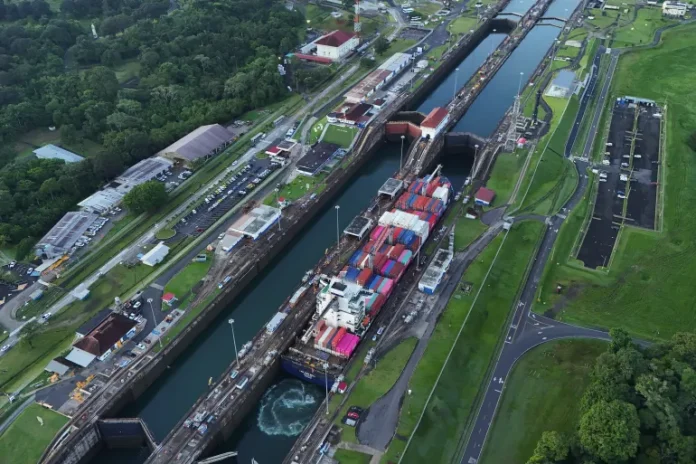Former U.S. President Donald Trump has sparked international debate with a recent claim that the United States should regain control of the Panama Canal. Trump accused Panama of charging exorbitant fees on American ships that use the vital waterway, a major global trade route connecting the Atlantic and Pacific Oceans.
Taking to his Truth Social platform on Saturday, Trump expressed his dissatisfaction: “Our Navy and Commerce have been treated very unfairly. The fees being charged by Panama are ridiculous. This complete ‘rip-off’ of our Country will immediately stop.”
The Panama Canal, completed by the United States in 1914, remained under U.S. control for decades before being handed over to Panama in 1999. The transition followed a period of joint management that began in 1977 under the Panama Canal Treaty. However, Trump’s remarks suggest he views the canal’s management as a matter of ongoing U.S. strategic interest.
Concerns About China’s Influence
Trump also raised alarms about what he described as China’s growing influence near the canal. “It was solely for Panama to manage, not China, or anyone else,” Trump declared, emphasizing his belief that U.S. oversight is necessary to protect the waterway from falling into the wrong hands.
This marks a rare instance of a U.S. leader openly suggesting the possibility of pressuring a sovereign nation to relinquish control of its territory. Trump argued that the canal’s original transfer to Panama was a gesture of goodwill and cooperation, but he implied that it might be reversed if the terms of that agreement are not honored.
“It was not given for the benefit of others, but as a token of cooperation with us and Panama. If the moral and legal principles of this magnanimous gesture are not followed, we will demand that the Panama Canal be returned to us, in full, and without question,” Trump stated.
Implications for U.S. Diplomacy

Trump’s comments underline his aggressive and often controversial diplomatic approach, which has been a hallmark of his political career. During his presidency, he frequently used strong rhetoric and threats of economic sanctions to influence both allies and adversaries.
Last month, Trump proposed imposing tariffs on Mexican and Canadian imports until those nations address issues related to illegal immigration and drug trafficking. “Mexico and Canada have the absolute power to solve this long-standing problem,” he said, warning that failure to act would result in significant penalties.
Strategic Importance of the Panama Canal
The Panama Canal remains one of the world’s most critical shipping lanes, facilitating around 5% of global maritime trade. The canal enables ships traveling between Asia and the U.S. East Coast to avoid the lengthy and treacherous route around South America’s southern tip.
In October, the Panama Canal Authority announced record revenues of nearly $5 billion for the past fiscal year, underscoring its importance as a global trade hub. However, Panama’s government has yet to respond to Trump’s statements.
Trump’s remarks have sparked questions about the potential shift in U.S.-Panama relations and whether his comments represent genuine policy intentions or a strategic move to assert influence over international trade.



